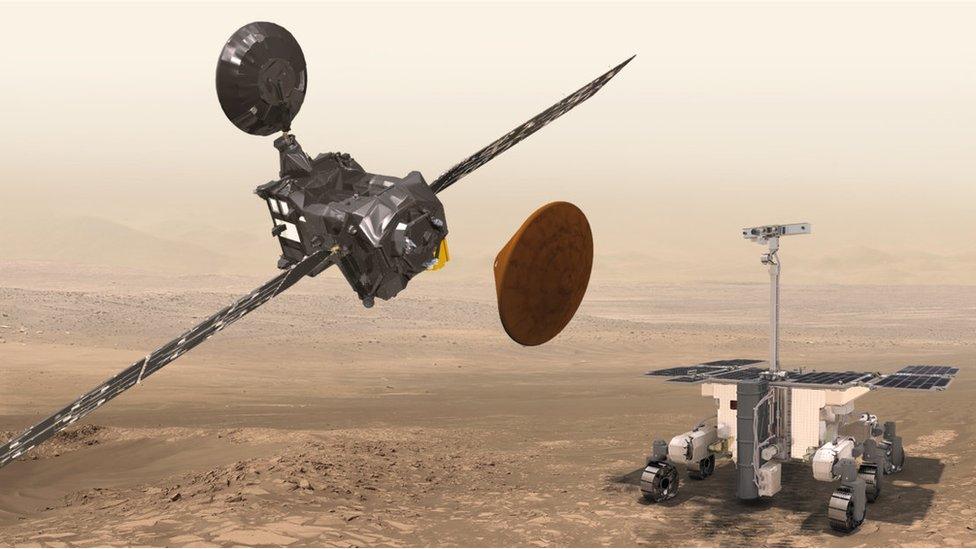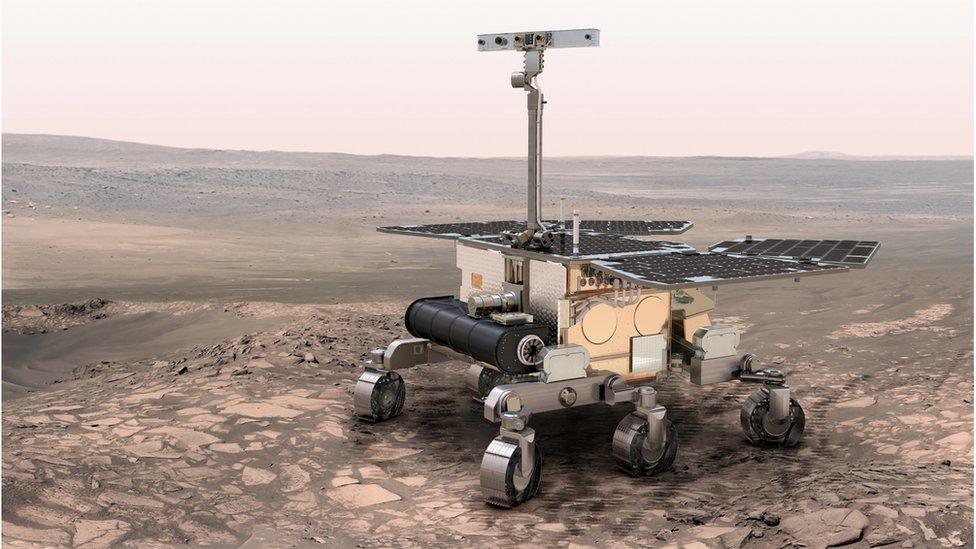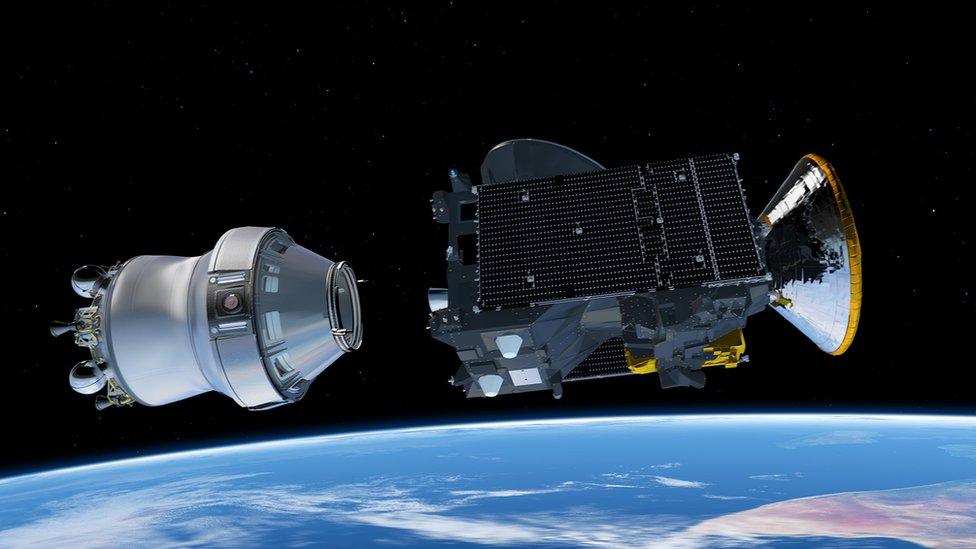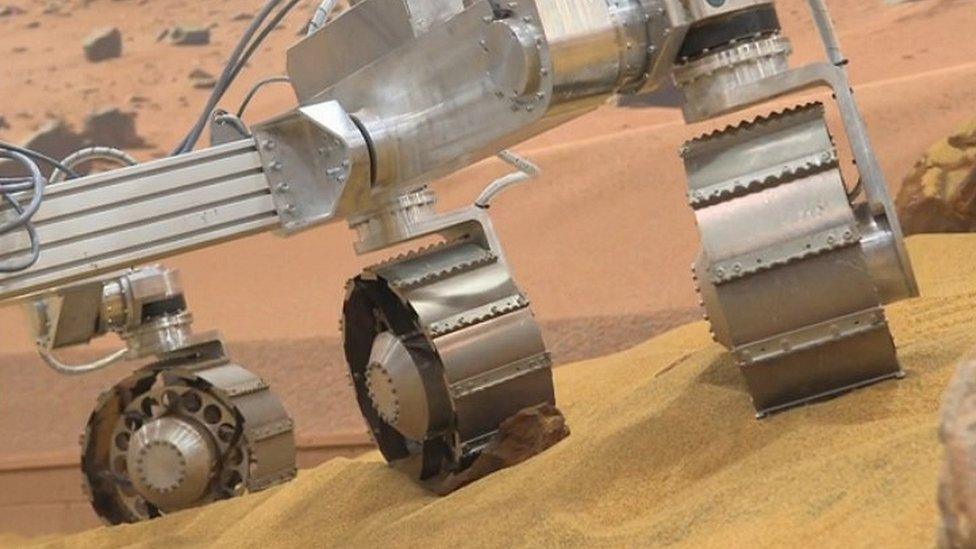Europe’s ExoMars rover in 'last chance saloon'
- Published

Artist's impression: The satellite (left) is on its way; the rover (right) launch has slipped from 2018 to 2020
Europe's rover mission to Mars is "drinking in the last chance saloon", warns the European Space Agency's director general.
Jan Woerner has told reporters of his deep frustration that the project to put the robot on the surface of the Red Planet has been delayed yet again.
The venture could not have an open-ended schedule or budget, he said.
The ExoMars six-wheeled vehicle was originally destined to leave Earth in 2011, but will not now go until 2020.
Inability of teams to meet hardware delivery deadlines has been cited as the reason for the latest delay.
ExoMars is a two-step programme that is being developed jointly with the Russians.
The first part is a satellite to study the planet's atmosphere, and this was launched successfully in March.
But the second phase - a rover that can drill 2m into the surface of Mars - has had a roller-coaster of a ride since it was first approved as a concept back in 2005, external.
This has seen the launch slip from 2011 to 2013, to 2016, to 2018, and now to 2020.
"I was not only surprised but very frustrated when I got the information that there is again a problem of delay," Mr Woerner told BBC News.
"I didn't accept the delay for half a year, and fought like hell to have a solution, but at the end of the day Igor Komarov (Russian space agency's director general) and myself have to accept that it is not feasible to have a launch in 2018."
Mr Woerner said the rover and all its support equipment could probably have been prepared in time to be launched at the beginning of 2019, but by then it would have missed the optimum transit opportunity that occurs only once every 26 months when Earth and Mars align.
Some thought was even given to launching the rover and then just storing it in orbit above the Earth before boosting it onwards to Mars at the next alignment, but that risked damage from the harsh space environment.
Critical meetings
Underpinning such an idea is the desire to reduce the additional costs that will come from another overrun in the schedule. Maintaining large teams is expensive and will push up further the price tag that now stands in excess of one billion euros.
Mr Woerner is about to meet with the European nations most heavily invested in the rover.
These countries are the UK and Italy. Along with the other Esa member states, they must now plot a sustainable course for the project.
The crunch meetings where the future of the rover will be determined come in June at a council of national delegations, followed by a gathering of space ministers at the end of the year.
Esa is currently in dispute with its industrial partners on how much the mission should cost. This impasse has to be resolved first.
But Mr Woerner could not hide his irritation at the constantly rising price Esa was being asked to pay.
"The one who is the source of the delays - we should be very carefully looking at whether they are also eligible to get some extra money, because they are the reason we are delayed," he said.
"From my point of view it's very strange if you say, 'OK, I do it later, and therefore I get more money'."
The director general said it would be difficult to take money from other areas of the agency's budget just to bail out ExoMars.
"We will have a discussion within the main member states who are involved in the programme and then we'll see how we can manage and whether we can manage. I'm not saying that we can manage it."
Mr Woerner was speaking here in Prague at the European Space Agency's Living Planet Symposium, external - a conference dedicated to Earth Observation.
Jonathan.Amos-INTERNET@bbc.co.uk, external and follow me on Twitter: @BBCAmos, external
- Published2 May 2016

- Published14 March 2016

- Published25 November 2015
- Published21 October 2015

- Published24 May 2015